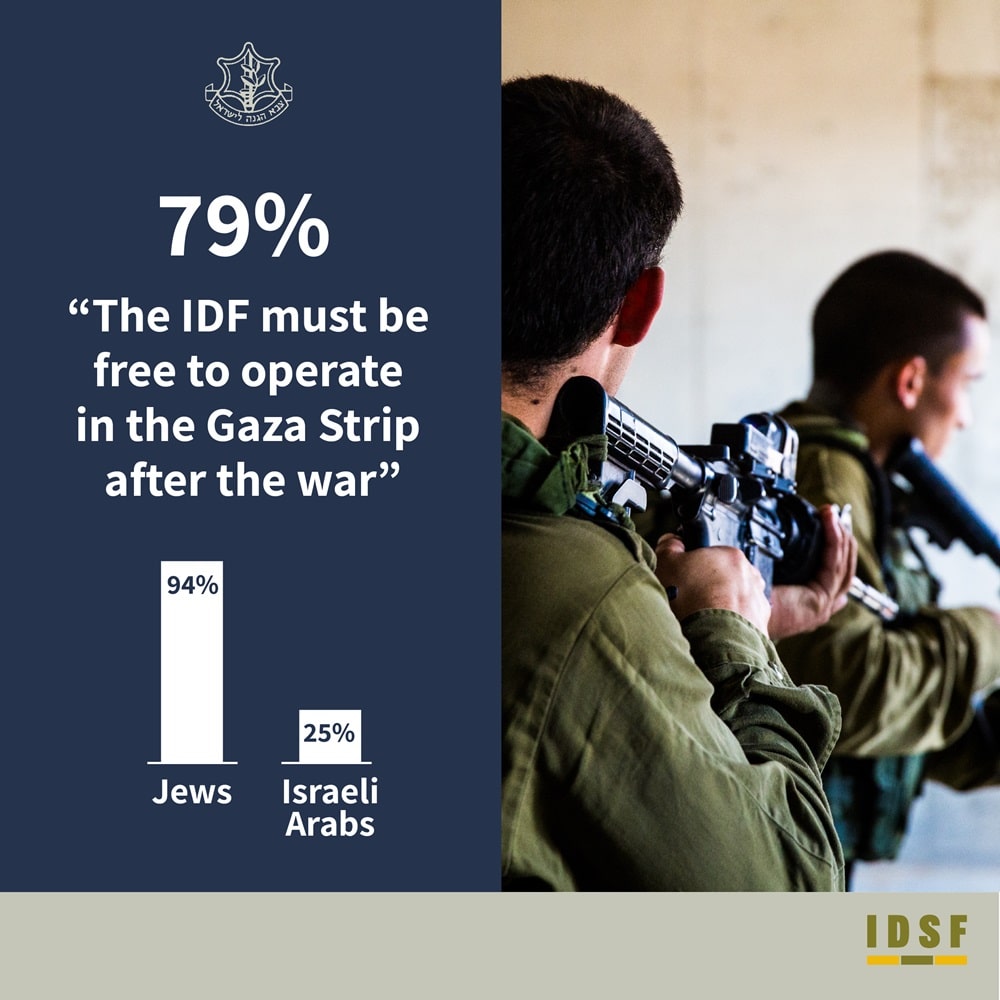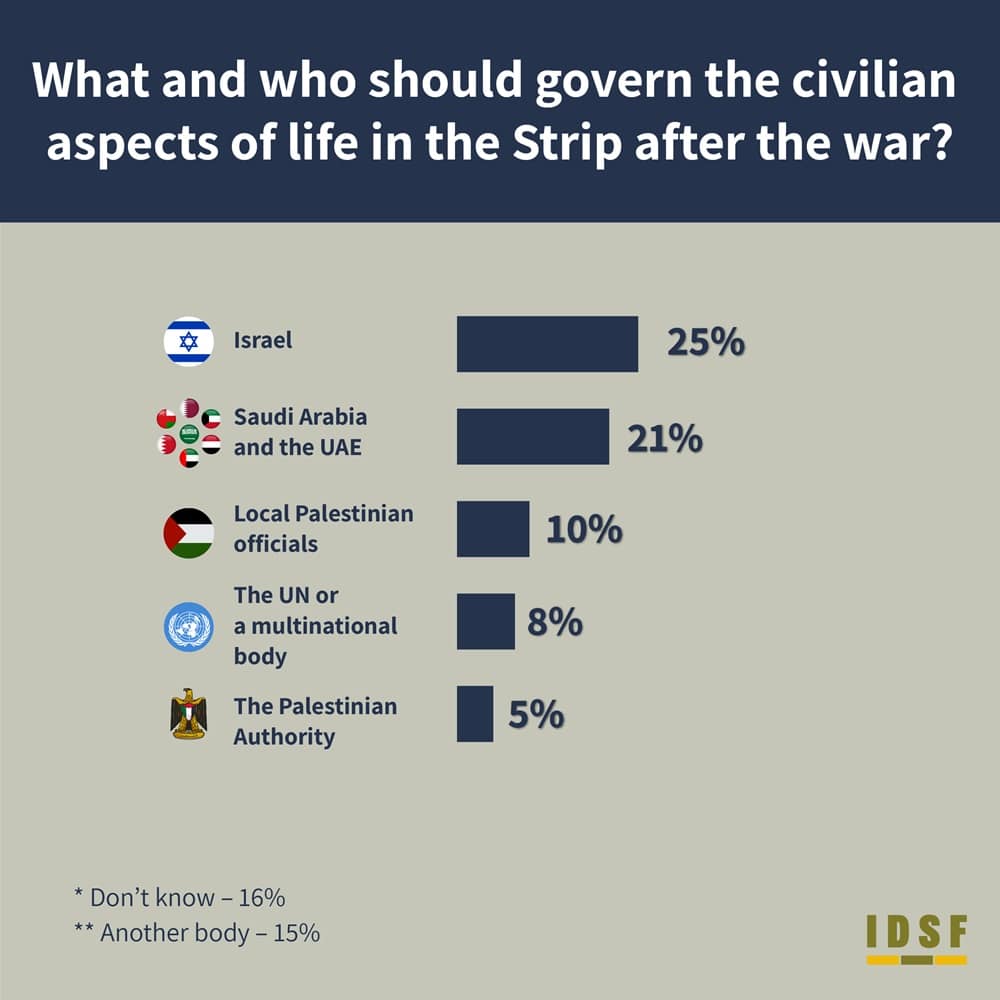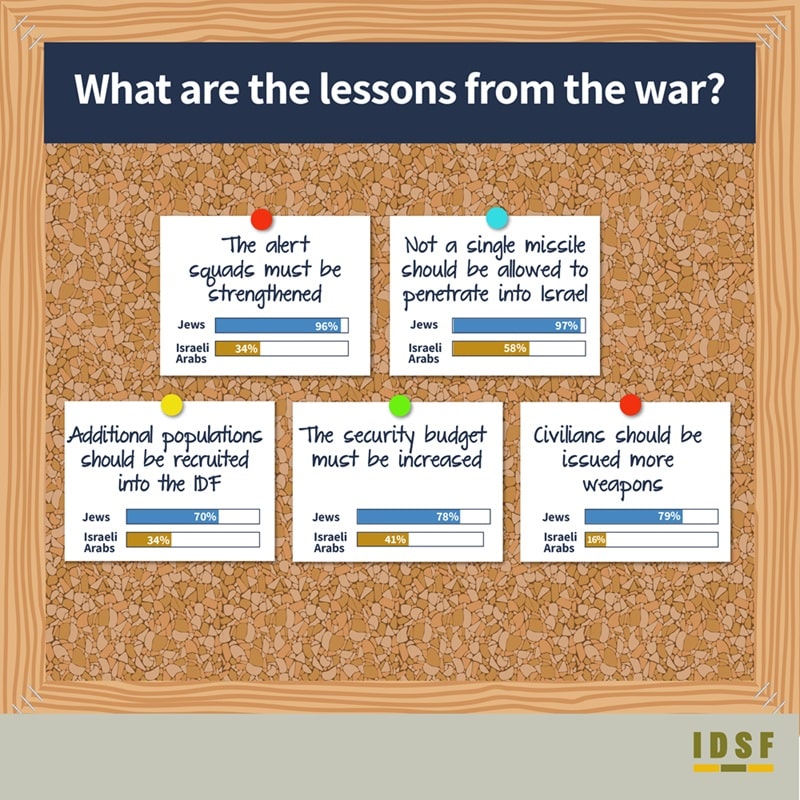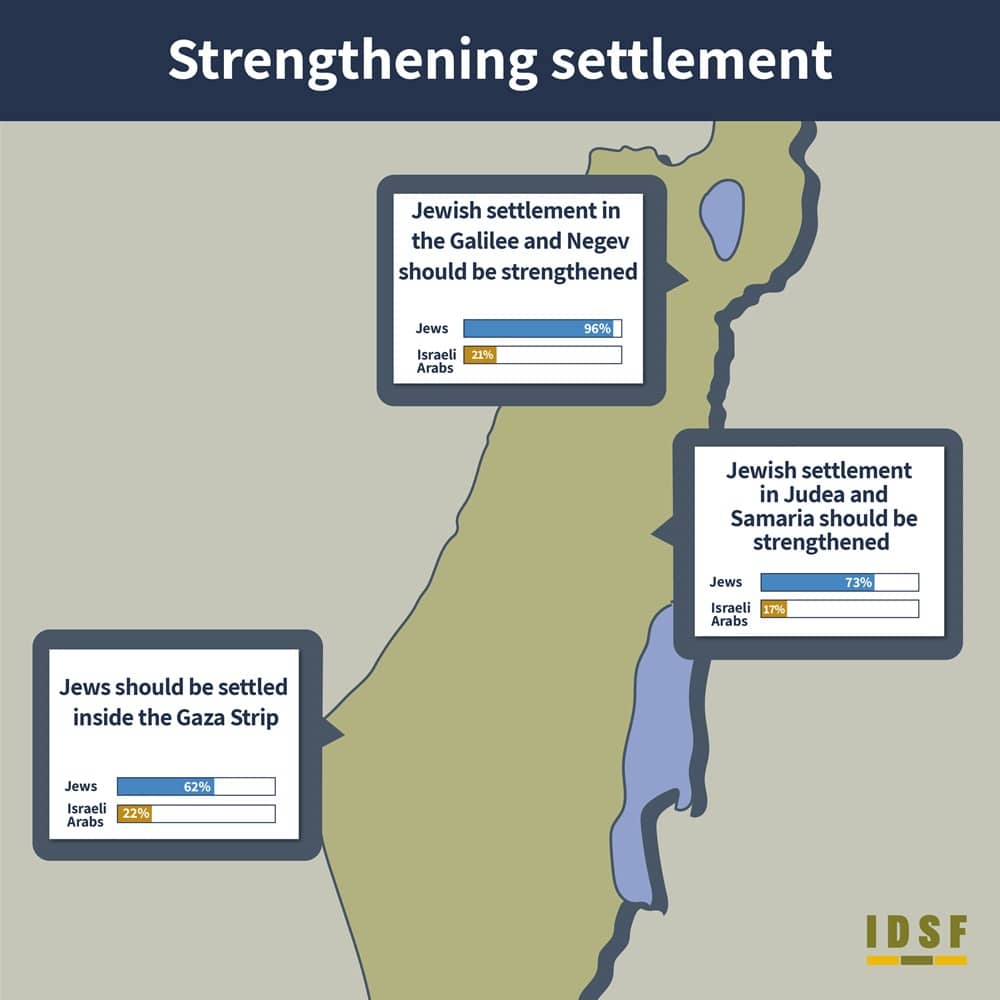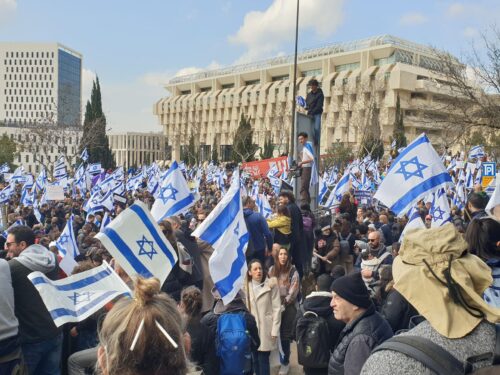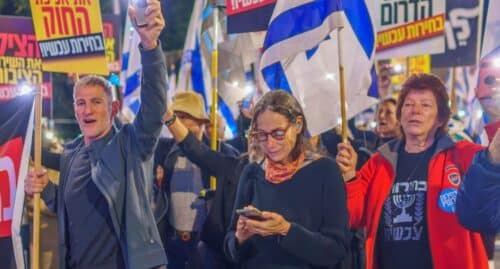The Swords of Iron War sheds new light on various initiatives the State of Israel has taken in recent years. It also raises important questions regarding the country’s future security. This time, in the IDSF Index, we have examined the war through the prisms of the past, the present and the future. First of all we checked what the public thinks about the circumstances and concepts which brought about the events of October 7. We then examined what the public thinks about the current situation and about the goals of this war. Finally, we examined what lessons the public thinks should be learned from October 7, and what the next steps should be once the war is over.
In the first article we focused on the reasons that brought this war about. In the second article we dealt with current issues relating to the progression of the war, and in this article we shall deal with the third and final part of the survey: the day after the Swords of Iron War.
The survey was conducted during January 2024 with statistical support from Dr. Hagay Elkayam. 1,156 respondents were surveyed – adult (over 18 years of age) Internet users in Israel, and has been reviewed to ensure fair representation in terms of age, gender, nationality, religion, and political affiliation.
For the Jewish combined sample (1,156 respondents) the maximum sampling margin of error is ±3% with a 95% probability. For the Jewish sample (919 respondents) the maximum sampling margin of error is ±3.5% with a 95% probability; for the Arabic survey (237 respondents) the maximum sampling margin of error is ±6.5% with a probability of 95%.
Israel, Saudi Arabia or the PA? The question of ruling over the Gaza Strip after the war
The October 7 attack cracked, not to say shattered, the Israeli public’s sense of security. It is therefore perfectly understandable why many citizens want to know how it will be possible to guarantee Israel’s security when the Swords of Iron War is over, and how will be make sure we do not repeat past mistakes. One of the ways to ensure Israel’s security is to ensure that we remain in charge of our own security. We therefore asked whether the Israeli public believes the IDF should be given a free hand to operate in the Strip after the war has ended. The result is unequivocal: 79% of those polled in the integrated sample, and 94% of the Jewish individuals polled, responded that the IDF must be given a free hand to operate in the Strip after the war as well.
On the other hand, the respondents were asked also whether they think international or American policing forces will be above to prevent a resurgence of terrorism from the Strip. Here too, the answer is clear: only 26% of the respondents, with no real difference between the Jewish or Arabic population, believe international forces will be able to prevent a resurgence of terrorism.
And what about the civilian aspect? There is no single specific solution that the Israeli public supports, but it definitely is against the solution of assigning the control to the Palestinian Authority.
Thus for example, 25% of the respondents believe the State of Israel should manage the civil aspect of the lives of the Palestinians in the Strip after the war. 21% of the respondents believe the civilians in the Strip should be governed by a body sponsored by Saudi Arabia or the United Arab Emirates. 10% of the respondents answered that this management should be assigned to local Palestinian officials. 8% said an international body should be appointed and only 5% of the respondents believe governing of the Strip should be transferred to the Palestinian Authority.
The respondents were also asked whether they think that, should the Palestinian Authority be the one to return to Gaza and govern it, Hamas will be capable of launching another coup d’etat and retake control. 81% of the respondents gave a positive answer.
Never again: the lessons to be learned following October 7
There is no doubt the Israeli government and the IDF will have to do some profound soul-searching, to understand how such a terrorist attack could have taken place on October 7, and – most importantly – how can we prevent a situation that will enable a similar attack to take place. The respondents were asked about their opinion as to what are the most important lessons to be learned following October 7 and the Swords of Iron War.
The main lesson, agreed by 89% of the total respondents, is that there must be no return to the policy of containment, and even a situation in which a single missile or rocket being fired toward Israeli territory – cannot be tolerated. This lesson is agreed both on the Israeli Arabs and the Jewish public. The second most important lesson, according to 84% of the respondents, is that the alert squads in the settlements must be reinforced and strengthened.
As part of the examination of the lessons, the respondents were asked whether they think additional populations, that have so far not been recruited, ought to be added to the recruitment lists of the IDF. 81% of the secular respondents, 79% of the traditional and 59% of the religious respondents gave a positive answer to this question. Among the ultra-orthodox there was an opposite trend – only 29% responded that additional populations ought to be recruited. Among Israel’s Arabs, 34% supported this idea.
Among the questions relating to the drawing of conclusions from the war, the respondents were asked whether they believe Jewish settlement in Judea and Samaria, the Galilee and the Negev should be strengthened. On these questions, the Jewish respondents provided high percentages of positive answers, while among the Israeli Arabs the percentage was lower. 96% of the Jewish respondents agree that Jewish settlement in the Negev and Galilee should be strengthened, as opposed to 21% of the Arabs. Similarly, 73% of the Jewish respondents agree that Jewish settlement in Judea and Samaria should be strengthened, as opposed to 17% of the Arabs.
The question whether it would be right to re-establish a Jewish population inside the Gaza Strip when the war ends – was also examined. 62% of the Jewish respondents supported this idea, 22% of the Arabs supported it.
“The survey proves that the Israelis, despite all the disputes, are in agreement with one another when it comes to fundamental issues”, says Brigadier-General (Res.) Amir Avivi. “Most Israelis, including Israel’s Arabs, realize that the IDF has to be able to operate freely within the Strip after the war. Most Israelis also realize that the Palestinian Authority must not be allowed to rule in Gaza, and that under no circumstances must the policy of containment, which tolerated rocket and missile fire into Israel, be resumed. The survey shows also that most Jews realize now what we at the IDSF have always claimed – that the Jewish settlement in all parts of the country, including Judea, Samaria and the Gaza Strip, is vital to ensuring Israel’s long-term security”.

